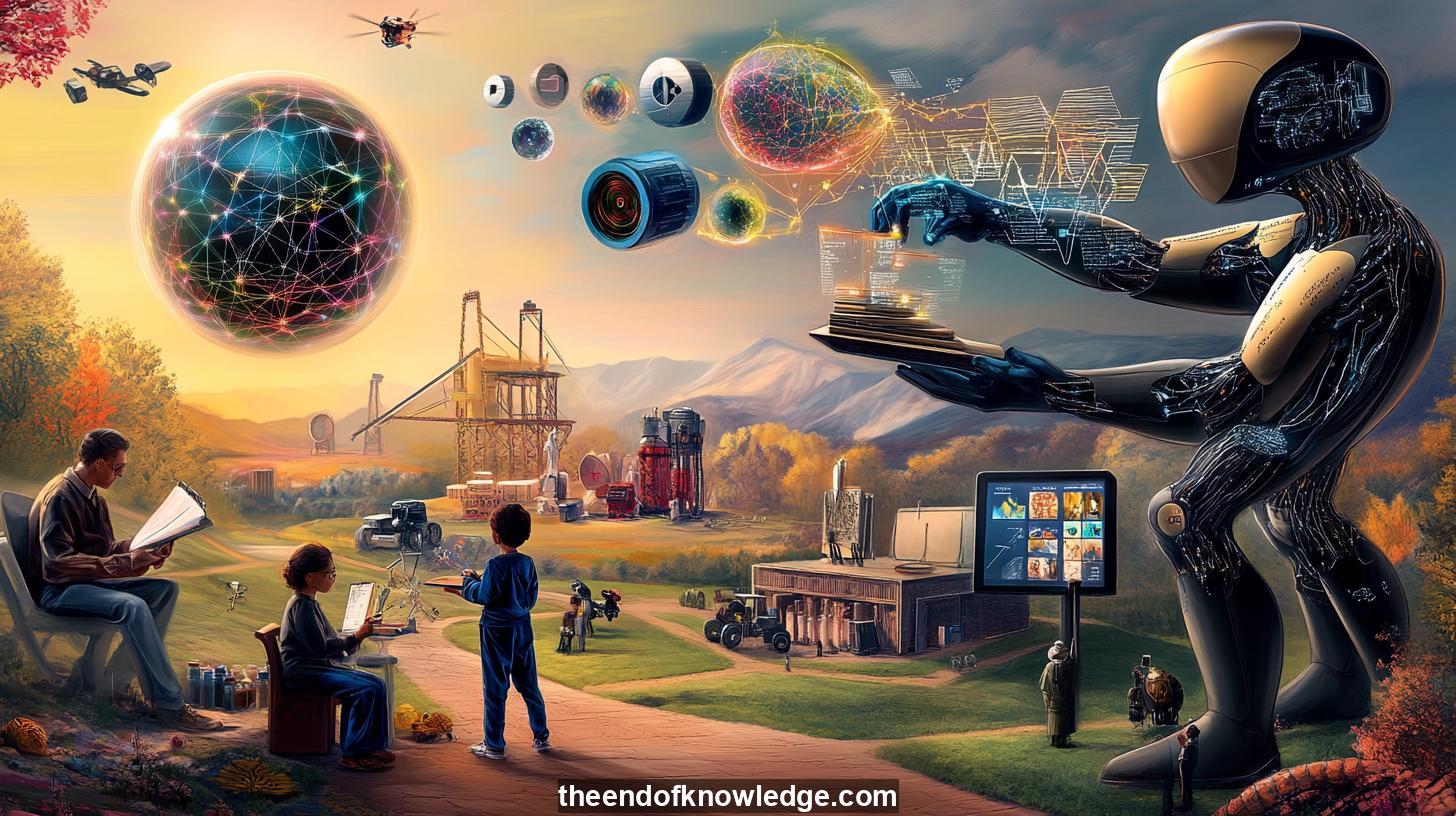 >
>
Concept Graph, Resume & KeyIdeas using DeepSeek R1 :
Resume:
The program discussed the impact of artificial intelligence (AI) on various sectors, including business, education, and society. It highlighted the potential of AI to transform industries through automation, data analysis, and decision-making. However, it also addressed challenges such as job displacement, ethical concerns, and the need for human-AI collaboration. The conversation emphasized the importance of education and retraining to prepare workers for an AI-driven future. Additionally, it touched on the role of AI in communication, healthcare, and personal productivity, while stressing the need for responsible AI development and deployment.30 Key Ideas:
1.- AI is revolutionizing industries by enhancing productivity through automation and data-driven decision-making.
2.- The integration of AI in business requires a shift from traditional problem-solving to a new paradigm of process transformation.
3.- Education systems must evolve to focus on human-AI collaboration, emphasizing creativity and critical thinking over rote learning.
4.- Ethical considerations, including data privacy and algorithmic bias, are crucial for responsible AI development.
5.- AI's role in healthcare includes personalized treatment plans and predictive analytics, improving patient outcomes.
6.- The future workforce will need hybrid skills, combining technical knowledge with human-centric abilities like empathy and creativity.
7.- AI tools like chatbots are transforming customer service, enabling real-time engagement and issue resolution.
8.- The adoption of AI in developing regions faces challenges due to limited resources and infrastructure.
9.- AI-driven simulations can model human behavior, aiding in product development and market research.
10.- The ethical implications of AI, such as job displacement, necessitate policies for a just transition.
11.- AI enhances personal productivity through tools like transcription and task automation.
12.- Collaborative efforts between humans and AI can solve complex problems more effectively than either alone.
13.- Cultural and linguistic diversity in AI development is essential for global applicability.
14.- AI's impact on communication includes real-time translation and personalized content generation.
15.- Education must prioritize lifelong learning to keep pace with rapid technological advancements.
16.- AI can address societal challenges like climate change through data analysis and predictive modeling.
17.- The integration of AI in governance requires transparent frameworks to ensure accountability.
18.- Human-AI collaboration can foster innovation, particularly in creative fields like music and art.
19.- AI tools are transforming the legal profession by automating research and document analysis.
20.- Continuous dialogue between stakeholders is vital to shape the future of AI responsibly.
21.- AI's role in mental health includes early detection of conditions and personalized therapy recommendations.
22.- The future of work will require a balance between human intuition and AI-driven insights.
23.- AI can enhance financial inclusion by providing access to banking services for underserved populations.
24.- The development of AI ethics guidelines is crucial to prevent misuse and ensure beneficial outcomes.
25.- AI's potential to democratize access to education and healthcare can bridge societal divides.
26.- The importance of human values like empathy and ethics must be integrated into AI systems.
27.- AI can optimize supply chains, reducing costs and improving efficiency in logistics.
28.- The cultural perception of AI varies globally, influencing its adoption and acceptance.
29.- AI tools are transforming marketing by enabling personalized campaigns and customer insights.
30.- The future of AI hinges on fostering a culture of innovation and continuous learning.
Interviews by Plácido Doménech Espí & Guests - Knowledge Vault built byDavid Vivancos 2025